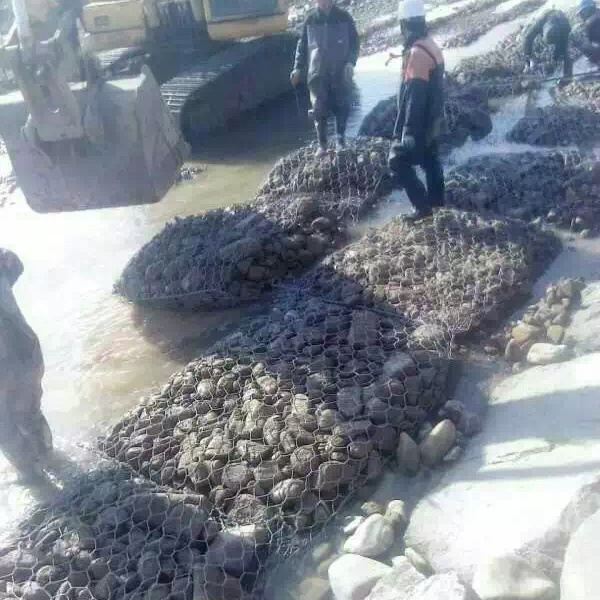Aug . 20, 2024 15:45 Back to list
How to Choose a Supplier for Your Gabion Retaining Wall Installation Needs
Installing a Gabion Retaining Wall A Guide to Choosing the Right Supplier
A gabion retaining wall is an effective solution for controlling soil erosion, providing structural support, and enhancing the aesthetic appeal of your landscape. These walls are made of wire mesh filled with rocks or other materials, creating a strong, durable barrier. When considering the installation of a gabion retaining wall, selecting the right supplier is crucial to ensure a successful project. In this article, we will explore the key aspects to consider when seeking a gabion retaining wall supplier.
Understanding Gabion Walls
Gabion walls are popular for their versatility and environmental benefits. They can adapt to various terrains and are often used in landscaping, highway construction, and environmental protection projects. The design of a gabion wall allows for natural drainage, reducing the risk of water pressure build-up and associated erosion. Before approaching suppliers, it's essential to understand the specific requirements of your project, including the desired height, design, and materials to be used.
Criteria for Choosing a Supplier
1. Experience and Reputation Look for suppliers with a proven track record in providing gabion products. Experienced suppliers are more likely to understand the complexities of building a retaining wall and can offer valuable advice on design and installation. Research customer reviews and request references to gauge their reputation in the industry.
2. Quality of Materials The longevity of a gabion wall depends significantly on the quality of the materials used. Ensure that the supplier provides high-quality wire mesh that is corrosion-resistant and durable. The stone or fill material should also be robust and suitable for your project’s specific requirements. Ask about their material sourcing practices and if they provide reliable warranties on their products.
installing a gabion retaining wall supplier

3. Customization Options Every project is unique, and having access to customizable options can greatly enhance the outcome. A good supplier should offer various sizes and designs of gabions, allowing you to create a wall that fits well within your landscape. Discuss your design ideas with the supplier and see if they can accommodate custom requests.
4. Technical Support and Guidance A reputable supplier should not only sell materials but also provide technical support. This includes guidance on proper installation techniques, design considerations, and even assistance with permits if required. Having a knowledgeable partner can be invaluable, especially if you are not experienced in construction.
5. Pricing and Transparency While cost should not be the only factor, it is important to consider your budget. Request quotes from multiple suppliers and compare their pricing models. Be wary of unusually low prices; they may indicate poor quality materials. Ensure that the supplier is transparent about pricing structures and any additional costs, such as shipping and delivery.
6. Sustainability Practices In today’s environmentally conscious market, it's beneficial to choose a supplier that prioritizes sustainable practices. Inquire about their sourcing methods and whether they use recycled materials in their gabion products. A supplier committed to sustainability can help enhance the ecological benefits of your project.
Conclusion
Installing a gabion retaining wall can be a fantastic investment for your property, but choosing the right supplier is essential for the success of the project. By considering factors such as experience, quality of materials, customization options, technical support, pricing, and sustainability, you can find a supplier that meets your needs. With the right partner, your gabion wall can not only serve its intended structural purpose but also add beauty and value to your landscape for years to come.
-
Why PVC Coated Gabion Mattress Is the Best Solution for Long-Term Erosion Control
NewsMay.23,2025
-
Gabion Wire Mesh: The Reinforced Solution for Modern Construction and Landscape Design
NewsMay.23,2025
-
Gabion Wall: The Flexible, Seismic-Resistant Solution for Modern Landscaping and Construction
NewsMay.23,2025
-
Gabion Wall Solutions: The Durable, Decorative, and Affordable Choice for Every Landscape
NewsMay.23,2025
-
Gabion Basket: The Durable and Flexible Alternative to Traditional Retaining Walls
NewsMay.23,2025
-
Gabion Basket: The Proven Solution for Slope Stability and Flood Control
NewsMay.23,2025
-
Versatility of Chain Link Fence Gabion
NewsMay.13,2025






